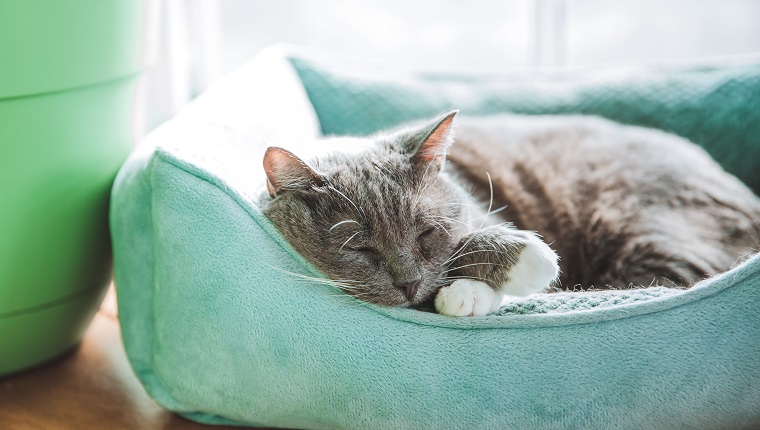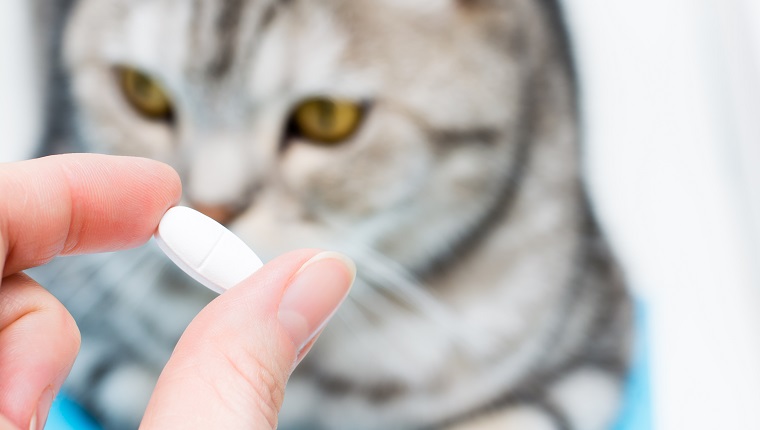Glucosamine for cats is a nutritional supplement that can help treat joint problems in cats, such as arthritis. It’s the generic name for a supplement that’s also sold under brand names including Cosequin, Glycoflex and Dasuquin.
It works by helping to keep a cat’s existing cartilage in good condition while also stopping the cartilage from breaking down. The supplement comes in a range of forms including tablets, liquid, and powders.
You can easily order glucosamine for your cat online from Chewy. While you don’t need a veterinarian’s prescription for it, you must consult your vet before adding any supplements to your cat’s diet. Closely follow any instructions for the correct and safe dosage.
Here’s what you should know about the uses, dosage, and side effects of glucosamine for cats.
Uses Of Glucosamine For Cats
Veterinarians generally recommend glucosamine to help treat cats with joint issues, including arthritis. It’s a mild anti-inflammatory supplement that helps to keep the cat’s cartilage in good condition, which it does by working to slow down the enzymes that weaken the cartilage.
In some cases, veterinarians have also suggested that glucosamine can benefit cats suffering from feline urinary issues.
Dosage Of Glucosamine For Cats

The following is a guideline for typical use of the supplement in cats and must not replace your veterinarian’s advice for your individual pet.
Glucosamine for cats often comes in tablet, powder, or liquid form, and may come combined with other supplements for joints such as chondroitin. Because there is so much variation for both formulas and individual cats’ needs, you must consult your vet for a proper dosage.
The recommended dosage for cats tends to fall between 120 and 500 mg per day, added to their food. Your veterinarian can advise you on how long you should keep giving this supplement to your cat.
It’s important to always follow the exact dosage and administration instructions as recommended by your vet and detailed on the supplement’s packaging.
Side Effects Of Glucosamine For Cats
Glucosamine isn’t known for producing many side effects in cats; although, the supplement can sometimes bring on bouts of diarrhea.
Odds of a dangerous overdose are not high. However, you should contact your veterinarian right away for advice if you believe your cat has taken too much of the supplement.
Has your cat ever taken glucosamine to help deal with joint issues? Did it seem to make your cat feel healthier? Let us know in the comments section below!









